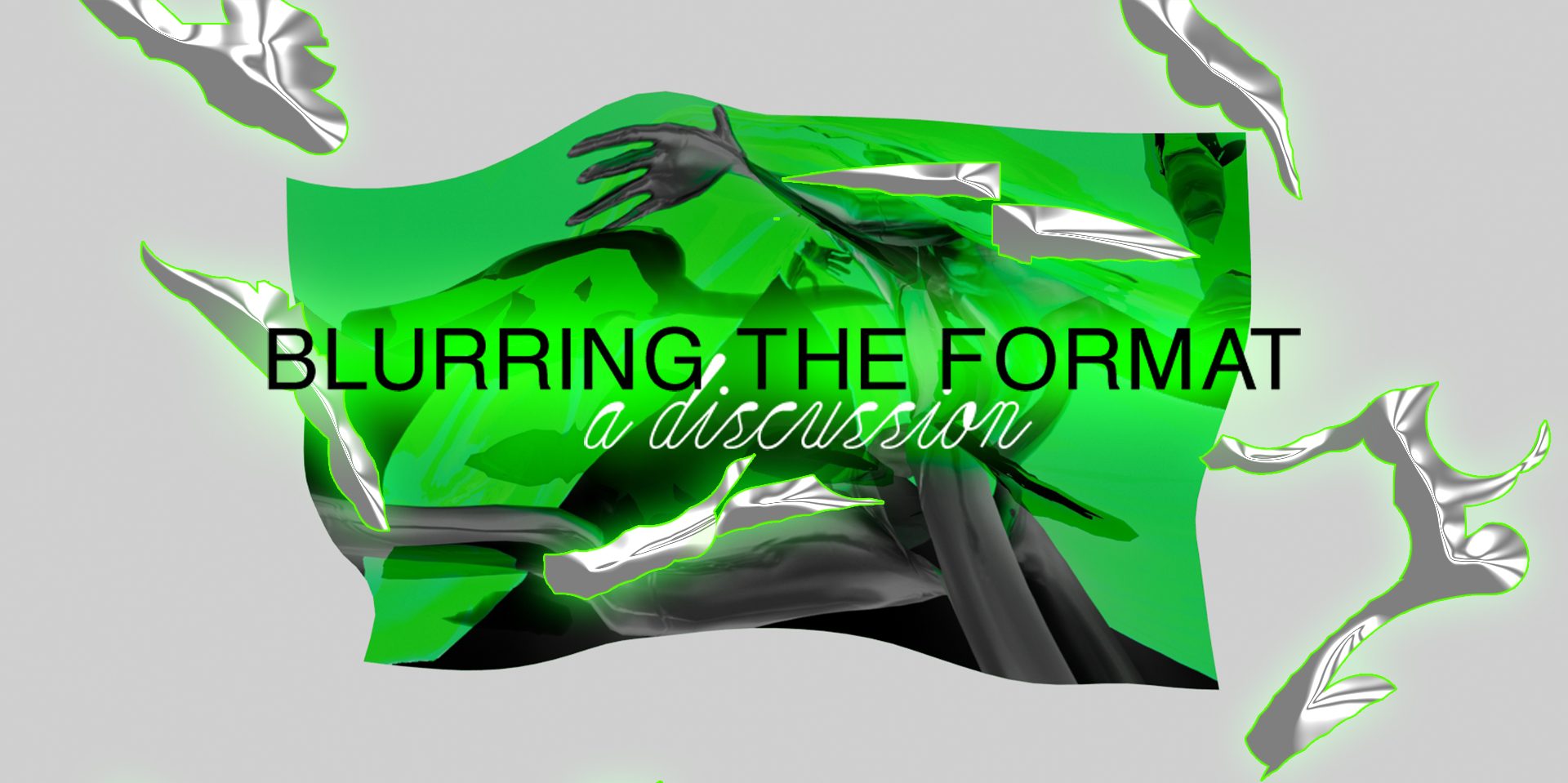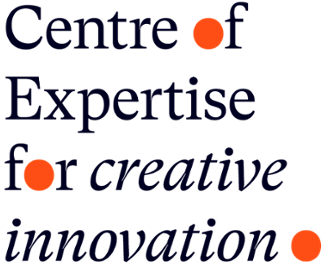Blurring The Format
Expanded Publishing for Practice-Based Research
February 7, 2023 at Rietveld, Room FL101, Amsterdam
Presentation and discussion: 16:00 – 18:30
Screening and exhibition: 18:30 – 19:30
Drinks from 18:30 onwards
Register for free via info@networkcultures.org
In research publications, more often than not media production—be it audiovisual or any other form of artistic practice that isn’t writing—is still seen as somehow inferior; mere support material. A figure that accompanies the text, the main act, and that would fail to be considered as a form of research itself. Producing, distributing and consuming media is not about illustrating previously existing research or knowledge, but about doing things: working with media is actively doing research. In this sense, we should try and facilitate both tools and means for practitioners of this practice-based research, currently not or at least underrepresented in the publishing industries. To put it concisely: what is the role of publishing within practice-based research?
Expanded publishing, or expanded outputs as we define it, is the research lens that tries to solve this question by going beyond both traditional and artistic publishing practices. What is interesting to us is being able to look at ‘non-publishing’ practices, as publishing within the arts is usually something that follows at the end of a process—or not at all—, being usually something site-specific that circulates through live events and experiences in an attempt to keep what Benjamin would call the ‘artistic aura’ intact. However, there is a need to add some publishing elements already throughout the whole artistic process, especially when it comes to the new field of (artistic) research where traditional publishing and artistic publishing meet.
With THE VOID (a new research project set up by INC), over the past year, there has been tons of research and experimentation with audio-visual production and distribution. To do so, THE VOID team decided to approach the topic by starting the production of their own content, in collaboration with artists. Now, after the first year of experimentation, we are trying to collect different ideas and questions that arose during this time of research. To properly set up a research agenda, we believe it’s crucial to engage in conversations with other artists, researchers, and experts from within the field.
In setting up this event, THE VOID aims to gather and discuss the role of expanded publishing and its possible trajectories. The program will consist of two parts. First, we begin with the presentation of the multimedia research done by the artist collective timeis.capital, which is creating a repository for self-organized initiatives in the art world through different multimedia means such as video, audio and 3D footage. This presentation will be the starting point for a broader discussion on the role of publishing and archiving for practice-based research. How can publishing be expanded to non-text-based output as well? What does it mean open source publishing audiovisual projects? How can artistic researchers share transparent workflows without diminishing their labor? How we can make the language of practice-based research more understandable? How do we make a wide variety of conversations happen in audio-visual language? We would like to discuss these and many other topics together with a group of experts from various fields such as art research, education, publishing, archiving, and (new) media industries.
Program
Presentation + Exhibition: Timeis.capital
Moderation: Patricia De Vries
Debate participants: Carlo de Gaetano (Visual Methodologies Collective), Mariana Fernandez (Arias), Roman Tkachenko and Iskra Vukšić (timeis.capital), Pien Visser (Freelancer at a.o IDFA DocLab), Tommaso Campagna and Jordi Viader Guerrero (THE VOID), Malin Dittmann (Archive Sites). More participants will be announced shortly.
Bios
Tommaso Campagna – researcher and videographer at the Institute of Network Cultures. His interest is in both theoretical and applied research of new media art and activist practices. Currently, he is curating THE VOID, a platform for experimental publishing in artistic research. He also collaborates with different global and local activist projects such as tracking.exposed, SPORE, Exploit Pisa and Amsterdam Alternative.
https://networkcultures.org/void/
https://tommasocampagna.net/
Malin Dittmann – multidisciplinary designer currently based in Rotterdam. Her design practice involves design and research on materials for interior, product, art and fashion. She investigates contemporary culture to create unconventional concepts and material innovations for various fields. She has previously worked as an assistant for international affairs at the Royal Academy of Arts Den Haag (2019–2022) and as a Textile Instructor at the Hogeschool for Kunsten Utrecht (2022). Since 2022 she is part of Archive, a publishing house and art organisation based in Berlin, Milan and Dakar, for which she coordinates publications and Archives continuous research stream Publishing Practices.
www.archivesites.org
www.archivebooks.org
www.archivejournal.org
Mariana Fernandez – artist-writer-researcher and the current editor and communications person at ☁ ARIAS.
Her practice intersects the fields of architecture, linguistics and technology. She is fascinated by fictional archives, piles of stuff, hedges, memes, guinea pigs and PowerPoints. In her book “Dear Machines”, she explores the potential of natural language processors as companions and co-writers, wondering about authorship, notions of digital kinship and her own relationship to machines.
Currently, she is focused on researching A.I., language and our intimate and sometimes problematic relationship with machines. She is part of the Sandberg AI research group, Visual Methodologies at the HvA, founder of the feminist research collective “COVEN, and she leads the A.I. thematic line at ARIAS Amsterdam.
In her spare time, she plots revolutions, plays tennis and makes critical commentary about reality tv, which she loves.
She is an alumni of the Gerrit Rietveld Academie and the Sandberg Institute.
Send her memes @iamarianafernandez
Carlo de Gaetano – designer and researcher at the Visual Methodologies Collective, where he specializes in data visualization for social research. He is currently developing an artistic research project on climate imaginaries, exploring audio-visual collections on nature from archives and online spaces. He’s also conducting experiments in (machine) learning from climate fiction in literature, cinema, and social media, with a special interest in the relationship between AI and imagination. He collaborates as an information designer with the Digital Methods Initiative (UvA), where he contributed to studies on climate visual vernaculars, climate movements, and fake news. Carlo designs teaching materials for digital design students and other educational programs inside and outside HvA, which include how to collect, explore and visualize collections of digital images, the ‘spreadsheet etiquette’ of the visual researcher, and how to use data visualization software and computer vision software in the study of social issues.
Projects:
- It happened tomorrow: a speculative landscaping workshop
https://visualmethodologies.org/society-5-0-festival/
https://docs.google.com/document/d/1FFO1zjsdOJ7n3J5AeHCmaipeCbo6V6S09zXqfQA21QM/edit?usp=sharing - Kijk in de zeespiegel: What will your environment look like in the future?
https://docs.google.com/presentation/d/1jRIBgHn7rQRExpSwoknTo5Pe2nDdA3Hz7K0if3EI9us/edit?usp=sharing
Timeis.capital is an online platform for audio-visual research on self-organisation. It consists of interviews with people who self-organise and the 3D scans of the spaces from which they do this — project spaces, squats and living rooms. It’s aim is to collect practice-based knowledge and strategies that are produced in the ephemeral landscape of artist-run initiatives — in order to strengthen the non-institutional art world and generate new energy for self-organisation. Timeis.capital consists of a fluid collective of artists and friends.
Jordi Viader Guerrero (MX/ES) – practice-based researcher on the philosophy of technology and media, currently doing a PhD at TU Delft on the algorithmic mediation of public life. His research and practice are chiefly focused on using design and theory to articulate digital technologies within wider cultural, political, and epistemic logics.
https://www.tudelft.nl/staff/j.viaderguerrero/?cHash=a3f772ab474fd7bf39c8ef31997b6921
https://infinitescroller.com/
Pien Visser – freelancer in project management and marketing/PR, part of the arts and culture industry since 2014, with a background in Cultural Analysis (Uva). Currently at a.o. performance collective Urland and IDFA DocLab. The later is IDFA’s new media program, exploring the art of interactive and immersive non-fiction, where I work specifically on the Research & Development program. Here my projects include: The R&D Summit and expert meetings, the ONX + DocLab MoCap Stage and MIT Open DocLab’s audience research.
Patricia de Vries is research professor at Art & Public Space, the lectorate of the Gerrit Rietveld Academie. Her work is embedded in artistic practices that deal with stories about emerging technology and the urban environment. Previously, she worked as an assistant professor of philosophy at Maastricht University and as a researcher at the Institute of Network Cultures in Amsterdam. She received her PhD from Erasmus University in Rotterdam.
https://lasp.rietveldacademie.nl/INFO
Register for the event by sending an e-mail to tommaso@networkcultures.org.





